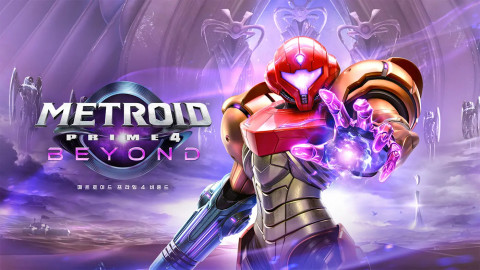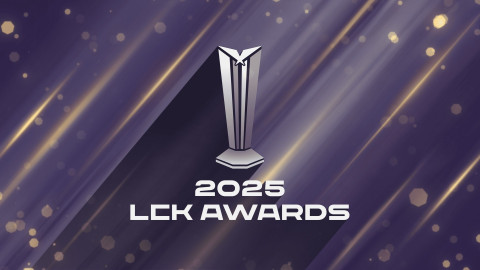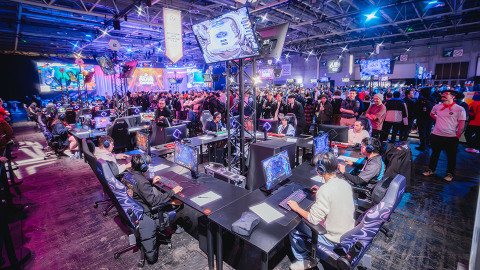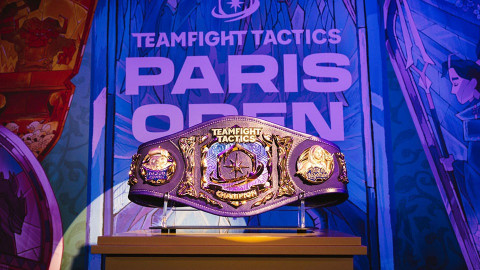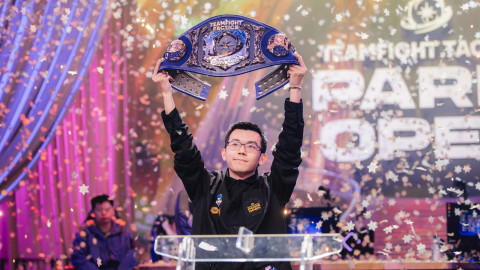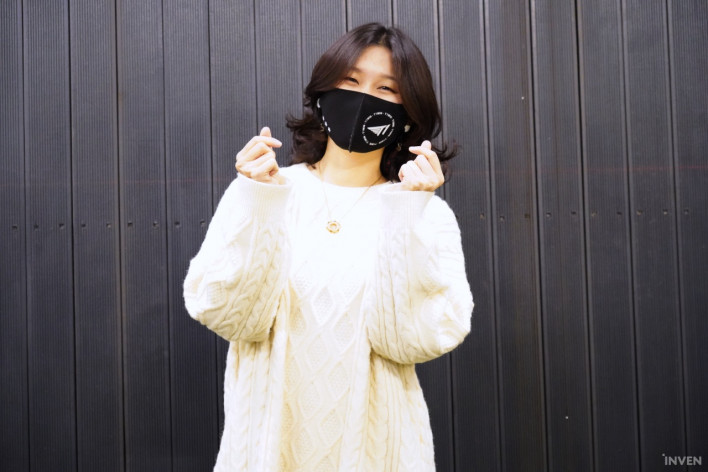
‘The End Is Just The Beginning’ is a children’s book I used many years ago to teach kids when I used to be an English teacher. It’s a book that literally starts off with the word, ‘The End’, and tells a picture story to provoke children’s thoughts about a conclusion.
Especially with how hectic and drama-heavy this year’s off-season has been, it really felt like the 2022 season started right after this year’s season ended. Amidst the crazy roster moves of players and coaches, one coach who also announced free agency is Park “Hajin” Hyunseon.
During her last two year tenure with T1, I learned that her journey was full of uncertainties. From analyst/manager to player development, her journey was also about climbing one mountain after another, with seemingly no end in sight. And when you’re working for a team like T1, those mountains become as big as Mount Everest.
As the end of her tenure with T1 marks a new beginning in her journey in esports, I managed to catch up with Hajin to talk about her experiences with the team, changes in perspective when it comes to working in the scene, as well as possible new beginnings in her future.

The last time we chatted was two years ago, when you first joined T1 as an analyst. A lot has happened since then, so can you reintroduce yourself to our readers?
My name is Hyunseon, but people in esports call me Hajin. I'm Korean, I was born here but I moved to Paris when I was young. People ask me how I ended up in esports, but I actually went to engineering school and that's where I discovered Worlds in 2015, because it was in Paris. I got the opportunity to work there as a translator and I just loved it. I just knew I had to work in esports.
After I finished my studies, I worked one year as a freelance translator and as a host in Starcraft 2 and League of Legends. In 2019, I got the opportunity to work with Misfits, because they hired GorillA and PoohManDu, so they needed a translator. I joined as a translator, but worked a little bit as a manager for their academy team, which is when I started learning a bit about the analyst job, because I was translating everything.
I think an obvious start to our conversation has to be about your time with T1. How would you describe the experience?
A friend asked me that question and the word I used was "unique". I got to see everything from the inside. I learned a lot, but it was a difficult process. It was great when we won the Spring split in 2020, but ultimately we didn’t even make it to Worlds last year. So many things happened this year as well, but this time, I was fully hands-on with the team. I was very happy when they did well at Worlds this year, and while it sucked that they didn’t make it to the end, I was proud of the boys. It's definitely been a rollercoaster ride, and it was unique because it was T1.
Your role changed over the course of your tenure at T1. Please walk me through how your responsibilities changed in that process as well.
Yeah, a lot of people ask me what I do, because my official title is "Player Development Coach", but I joined T1 at the end of 2019 as manager/analyst. At the time of my initial recruitment, they were looking for a second manager, because they wanted to get bigger. We also hired Tolki as an analyst, so they needed a translator. I was obviously underqualified compared as an analyst, so it was also me learning the analyst job in the process, which is why I got that double title.
But I realized that the job was too ambiguous. I wasn't really part of the team. I was the analyst providing data, but I wasn't invited to watch the scrims. That's what I brought up at the end of the year with my higher-ups.
At the end of the 2020 season, I talked to John [Kim, T1 COO, who passed away July 2021 — Ed.] about my role and what I wanted to do. They were thinking about the players' health and because I was interested in that area, we came up with that new title ["Player Development Coach"].
There are things like hard practice that players need to perform well, but there are also things like emotional intelligence, which really matters a lot, because it's about motivation, concentration, confidence, and communication, as well as physical health. I wanted to also bring in some personal development, so I presented powerpoint slides for my ideas of some programs to the higher-ups

Players are young adults. They may be professional, but they don't have much chance to have social experience [outside of gaming]. They just play games all the time, so they don't have time to develop other important parts of their life. I organized everything in the players' lives outside of the game.
However, the main team is so busy with practicing and striving for results: they scrim all the time, then there’s solo queue, as well as sponsor activities that they have to fulfill, so they don't have time for some things like workshops. That's why maybe we should've started with the academy players, because they don't have such a strict routine yet.
What led you to the decision to part ways with T1, on your end at least?
I wasn't able to do all I really wanted to help the players. In esports, players are young and play this game all the time, they have this passion and they really love it. I wanted to bring something to the players, to make them happier, healthier, but I think there's no room for this currently in the Korean infrastructure.
I don't if this is going to be controversial, but I was the only woman among all the players and coaching staff. To be really the only one, it's hard. It gets lonely. I feel that I was being especially more careful when it came to interacting with the players, and I could feel that the players were doing the same as well. I wish I was able to bond with the players more.

Working with a world-class team like T1, what are some of the factors that separate them from the rest of the pack?
One unique thing about T1 is that the organization is under pressure all the time. If you play well, it's normal because we're T1. But if we fuck up, you have the whole community on your back. The pressure is what makes all the difference.
Does the pressure make players perform better? Because sometimes, players even behave like robots…
It depends. On T1, there are many veteran players who can handle the pressure. But there are new players like Gumayusi and Oner, who present themselves as confident, but they can get nervous before the games as well. Once they are in-game, they're fine, but sometimes I saw them literally shaking before matches.
You previously mentioned to me that you were close friends with Yang “Daeny” Dae-in [former head coach for T1, currently signed with DWG KIA]. How would you describe your working relationship, as well as friendship with him?
When Daeny joined the team, he didn't hire me, but I was part of the team. I told him that I felt under qualified to teach in-game stuff to the players, so I was more involved with him when it came to player development. However, he always considered me as another coach of the team. He could’ve discriminated, but he didn’t. I feel that things wouldn’t have gone the same way if I was on a different team. He really considered me as a real coach. I am really grateful for that, and I learned so much from him.
We talked a lot. He is someone I respect a lot, so I think that motivated me to work even harder, and that's also something he brought to the players. I don't think I've ever seen someone as passionate about the game as him. He's such a workaholic. All he does is eat, sleep, and game.
How would you say you've grown during your time with T1? How has it changed some of your perspectives?
The toughest part of the job was loneliness. On top of being the only female staff on the team, as well as COVID & the work hours we had, I had no personal life. Plus, I kept a certain distance between the players and myself so I didn't really have anyone to talk to. On top of all that, because we're T1 and how so much of my work was confidential, I didn’t really have anyone to talk to.
When I list it out like that, it makes the job sound terrible [laughter], but on the plus side, I learned a lot about the game. I worked with the best. It's so valuable, you can't pay for it. I watched the best players grow and change, and that was the most valuable thing about this year: to be allowed to be inside and see the changes of the team.
So to answer your question, I'd say that I’m now able to understand the players' perspectives a lot more. I empathized with the management a lot more in the past, but living the same life as the players, I realized how tiring their schedule is. They don't sleep a lot, they play all the time, they have this constant pressure from the community. It's really hard for them.
It can't be good for their health, and since I felt that playing one or two solo queue games wouldn’t really matter, I had a chat with our general manager Choi "Polt" Seung-hun. However, he was quickly able to convince me that one solo queue game will definitely make all the difference in the world. Being more hands-on with the team this year made me understand that to the fullest extent.
Has the last two years changed your perspective on having a career in esports at all?
I'm still passionate about esports and I grew even more respect for the players. Now, I kind of see the difference in work ethic between Korean teams and European teams, because I was once a part of both Misfits and T1. I’m not saying that Misfits didn’t work hard or anything like that, but the difference in the amount of practice that Korean teams put in compared to how much Misfits put in the past is quite substantial.
There are pros and cons. Short-term, the players' performance can be better, but long-term, I don't think it's healthy to work that hard. In hindsight, I can see what can be improved in both regions. I don't have the answer, of course, but when a team signs a player, it's usually for a year or two, so they have to perform. So, are they gonna focus on short-term results? Or are they gonna focus on long-term growth, respecting the players' private lives, health, and everything? This is something that teams need to solve.

Now that your journey with T1 is over, what's next?
I don't know, nothing's decided yet. I hesitate a lot, actually. I want to study psychology and be really qualified to help the players. That's one thing. The other is to work in a game company and learn how to organize leagues and be more on the management side. Now that I've seen a lot of different parts of esports, I am thinking long-term about my career as well.
LoL esports is growing and there's going to be more young blood that wants to pursue a career in this scene, especially for those who want to work more hands on with the team. What piece of advice would you give them?
The thing I always say is find something that you really like and become an expert in this field. It doesn't need to be about games at first. If you want to work in marketing or content, there are so many opportunities. Find something you like and start working.
My career path has been so strange — from engineering school, to translator, to player manager. Be open-minded, start somewhere, and build your connections little by little. If you want to work as an analyst, start making content. Even if you are awesome and a game genius, it will be hard if people don't know you exist.

-

Striving for perfection to achieve excellence in esports
Sort by:
Comments :0


